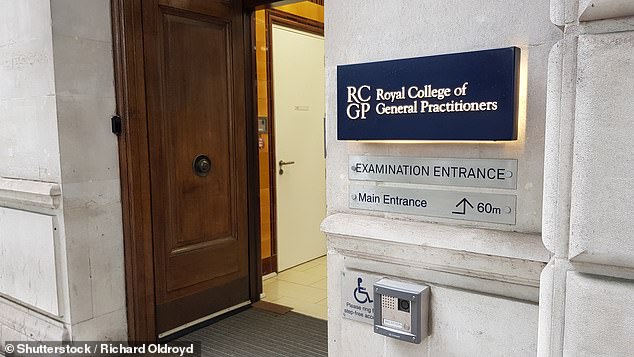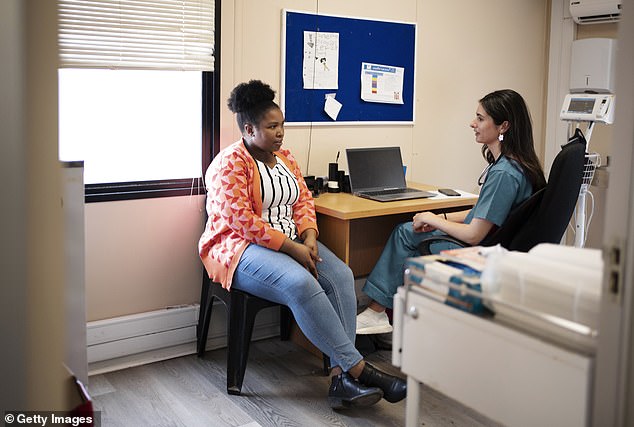Paediatricians urge the NHS to stop hiring junior doctors on children’s wards to save money over safety fears
The NHS should stop recruiting doctors to children’s wards due to safety concerns, paediatricians say.
The Royal College of Paediatrics and Child Health has called for an immediate ‘pause’ until there is clearer guidance on how they are deployed.
It follows a ‘comprehensive consultation’ with its members about their views and experiences of physician associates (PAs), who undergo less rigorous training than doctors.
More than 2,000 pediatricians in Britain responded to a survey, with 80 percent of respondents agreeing or strongly agree that ‘the recruitment of PAs should stop while the NHS develops structures for the appropriate use of PAs’ .
Some 94 percent said the NHS should centrally define a training framework and scope of practice for PAs in their specialist areas of work.
The Royal College of Paediatrics and Child Health has called for an immediate ‘pause’ until there is clearer guidance on how they are used

The move comes after the Royal College of General Practitioners and the British Medical Association also formally opposed its use

PAs only need to complete a two-year postgraduate degree, rather than a medical degree
The move comes after the Royal College of General Practitioners and the British Medical Association also formally opposed its use.
PAs only need to complete a two-year postgraduate degree, rather than a medical degree.
Some courses allow students to join after studying geography, human resources or English literature.
Their role is to ‘support doctors in the diagnosis and treatment of patients’ and they can be deployed in GP practices and hospitals.
The NHS has unveiled plans to expand the role as a way to meet growing demand for care.
However, they have come under scrutiny in recent years following the 2002 death of Emily Chesterton, who suffered a pulmonary embolism at the age of 30 after being misdiagnosed twice by a PA.
Liverpool’s Alder Hey Children’s Hospital has sparked controversy over the way it deployed PAs and has since stopped using them in its safeguarding team.
It admitted earlier this year that the Crown Prosecution Service and police felt unable to rely on PA investigative reports in cases of physical abuse and neglect.

The NHS has unveiled plans to expand the role as a way to meet growing demand for care

The role of a PA is to ‘support doctors in the diagnosis and treatment of patients’ and they can be employed in GP practices and hospitals
The RCPCH said: ‘Having a well-supported and skilled multidisciplinary team (MDT) benefits children and young people and supports the robustness of the pediatric workforce.
‘Clarity about the different roles within the MDT is important: for team members, for patients and for PAs themselves.
‘Clinical directors and service leaders should ensure that they and their pediatric teams are aware of the supervision arrangements for PAs in their teams.
‘In addition, all health professionals must have a clear training pathway that meets a nationally led and understood scope of practice for that role, which is supported by professional regulation.
‘While local training structures exist for some PAs currently working in pediatrics, no central structures exist.
‘RCPCH recognizes that PAs can make an important contribution to multidisciplinary teams.
‘But as this work is undertaken, we would like to once again remind local systems that PAs should not replace the role of pediatricians in the delivery of care to children and young people.’
A spokesperson for the Department of Health and Social Care said: ‘Physician staff play an important role in the NHS, as they have for over twenty years, but we are clear that they must support, not replace, doctors and provide the right level of should be supervised. by healthcare organizations.
‘The NHS has provided clear guidance on the use of junior doctors, and we expect Trusts to follow this.’
